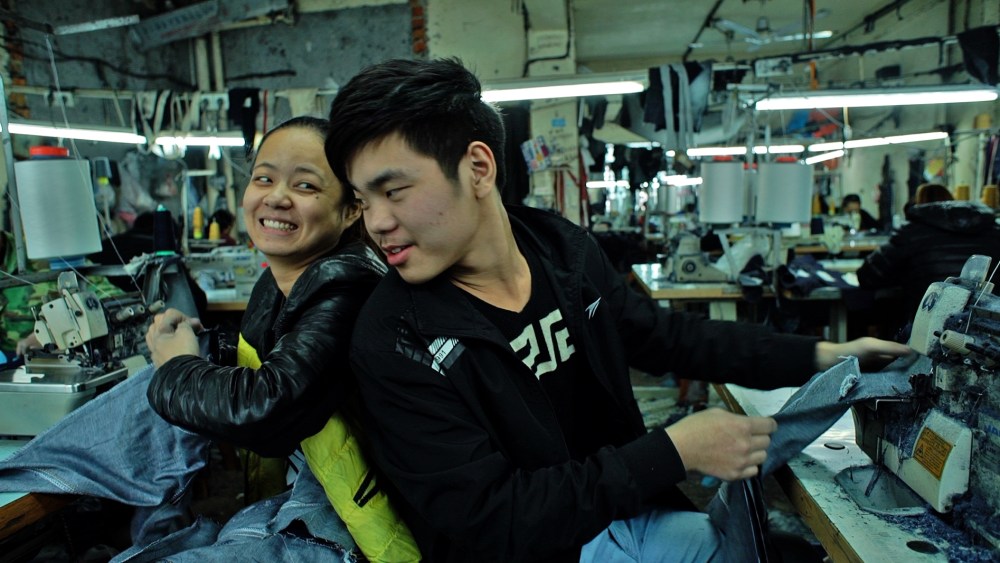Simply when Wang Bing’s textile documentary appeared to be shedding its energy of statement, the Chinese language filmmaker’s “Youth (Onerous Instances)” – the second in his deliberate trilogy – takes on an sudden dimension the passage of time. His account of the rising frustrations of younger staff in Zhili (a district of Huzhou Metropolis) is correct, if oblique, overlaying all kinds of human topics whose lives don’t usually overlap, However they’re certain by a typical atmosphere. At almost 4 hours lengthy, it even surpasses its mammoth predecessor, “Youth (Spring),” but it surely additionally makes use of the movie as a platform for deeper exploration.
Garment staff within the wake of China’s textile increase have lengthy been Wang’s focus, together with his 2016 documentary “Bitter Cash” chronicling the struggles of migrant staff, whereas his subsequent museum set up “15 Hours” was set in a garment manufacturing facility Unfold over 900 minutes. “Youth (Spring)”, which launched the brand new trilogy in Cannes final 12 months, is nearer to the latter in type and substance, insisting on making the viewers really feel the lengthy passage of time. “Youth (Onerous Instances),” which premiered in competitors at Locarno, feels sharper and extra purposeful, each in scope and method.
Each movies (in addition to Wang’s third characteristic, “Youth (Return),” which can premiere in Venice subsequent month), had been produced from hundreds of hours of footage. Wang made the three movies between 2014 and 2019 whereas inserting himself amongst staff in shabby dormitories alongside Xingfu Street, which is residence to greater than 18,000 such personal factories. (Though China is dominated by a celebration with “communism” in its title, it’s really a capitalist nation). At first look, the sequel’s audiovisual method is acquainted, with unobtrusive medium photographs of younger Chinese language hunched over noisy stitching machines, their collective rattle forming a white hum. Like the employees, you get used to the muffled rumble.
Nonetheless, the place the primary movie depicted time as an enormous area—for higher or worse, it was intentionally torpid—”Youth (Onerous Instances)” is much more stunning in its shot choice. The flooring in these factories look extra cluttered than these within the first film. They’re fully totally different areas, however this gimmick signaled to anybody watching the 2 movies sequentially that point had handed and issues had been turning into untenable. The sequel makes use of the fluorescent lights and darkish, winding corridors of manufacturing facility buildings to confuse viewers. Moments that appear like day shortly flip into night time, and vice versa, as characters transfer out and in of rooms and linger on balconies, with Wang’s digicam monitoring tirelessly. When your life revolves round a single repetitive activity, time basically loses all which means.
Many of the staff Wang introduces (by way of on-screen textual content) are of their early twenties and hail from Anhui province, a reputation that piques curiosity when repeated over such a protracted operating time. This refined flourish in the end places an attention-grabbing bullet within the film’s room. Its quick objective is later rewards, which have to be rigorously earned. Alongside the way in which, Wang captures friendships and interpersonal dramas value ready for.
Wang as soon as once more emphasizes that his consideration is not going to keep on anybody character for too lengthy, however will assemble his total narrative by symbolic irony. He captures shirtless males struggling for unaffordable winter jackets on sizzling summer season days, or would-be {couples} being denied the chance to discover romance and sexual stress attributable to lack of time and area – making crotchless underwear.
A handful of older staff amplified the story earlier than them. A lady introduced her younger daughter to assist. One other introduced her mom. An opportunity picture displaying a visiting middle-aged relative with a cotton ball stuffed in his nostril (for unexplained causes; maybe the stench of sweat or particles) is harking back to the ban on the virus in lots of nations, together with China. The method of embalming a physique. Collectively, these pictures have large dramatic significance. They requested: Is that this your entire lifetime of China’s poor from cradle to grave and past?
Quickly a wage disagreement arises between staff and executives, and for the primary time in Wang’s trilogy, the stitching machines grind to a halt. Nonetheless, the silence that follows is eerie, as if part of the movie is lacking. It is virtually miserable to consider it, however maybe toiling beneath capitalist exploitation has change into such a standard a part of these folks’s lives that the act of toiling now defines their identities and consumes their sense of self . “Youth (Onerous Instances)” grapples with this dilemma by telling the story of inner divisions, collective bargaining, and the intense penalties that come up. The story follows younger migrant staff in China as they attempt to escape the dizzying restrictions of factories, the place compelled additional time and meager wages are inseparable from a lack of sense of the skin world and the human expertise.

